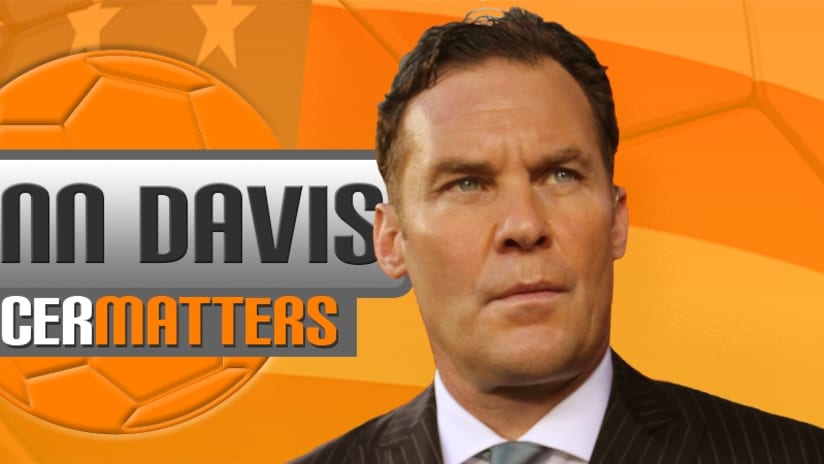The COVID-19 pandemic hit close to home for Houston Dynamo play-by-play broadcaster Glenn Davis, whose nephew Conn tested positive for the novel virus about a month ago.
Davis had Conn on his podcast "Soccer Matters" as a guest on his April 7 episode for an in-depth interview on his experience battling the disease. Conn is based in New York City, but had been in Milan, Italy for Fashion Week on Feb. 20-24, where he contracted the illness. The first main message Conn wanted to express, he told Davis, is that there's no demographic or group of people that aren't susceptible to the punishing effects of the illness. It can, and will, effect anyone even if you think you're otherwise healthy.
"I grew up in the Virgin Islands, free-diving and spear-fishing," Conn said. "I can hold my break four-plus minutes and can dive 125 feet. I don’t smoke, I have no pre-existing issues, I was dunking a basketball before and after I came back from Milan. I’m not exactly a person with a risk-factor that you would think would have a hard time with something like this, which is why I initially became public on Facebook and Instagram and with people, because it was very much being designated as an old-folks disease or if you’re obese or have pre-existing conditions or if you’re 65-plus, you might have a hard time.
"The reality is, I don’t fit that demographic in any regard and I got hammered by it. I’m still dealing with it a month later."
Conn was one of the first 50 cases in Manhattan and was self-quarantined for about a week to 10 days before going to the hospital. The doctors gave him a chest scan and checked his vitals, which were all within acceptable parameters. After the chest scan, he was diagnosed with pneumonia. He's feeling better now, but is still dealing with the residual effects of the illness.
"For anybody that’s out there, what can you expect is, there’s limiting testing available in most places, most states and municipalities," he said. "So if you don’t have a temperature of 103 and above and you don’t have difficulty breathing, you might not get a test.
"What they’re going to tell you if you go to the hospital is to go home and rest and they’re going to effectively tell you to treat it like a normal flu. Until you get to an elevated position where the risks are, in their opinion, more significant, they’re not going to keep you in the hospital. If you can handle it at home and manage it home and not clog up the hospital, I think that’s the right thing to do. But at the same rate, if you’re having issues and you know your body, go in. Let them know you’re coming and go and get checked out."
As the world continues to battle the pandemic, Conn said he recognizes the mental and physical difficulties people are experiencing due to social distancing and isolation. But he emphasized that his experience solidified to him that it's a battle that is going to require everyone's collective effort to overcome -- something that is going to take a while.
"Just do everything you can to be safe about it," he said. "Economically, financially, health-wise, I don’t think this is a sprint in any capacity, I think it’s a marathon. I think people need to prepare themselves for a marathon."
The whole interview contains valuable insight from someone who has first-hand experience with battling the virus. Give it a listen here.














